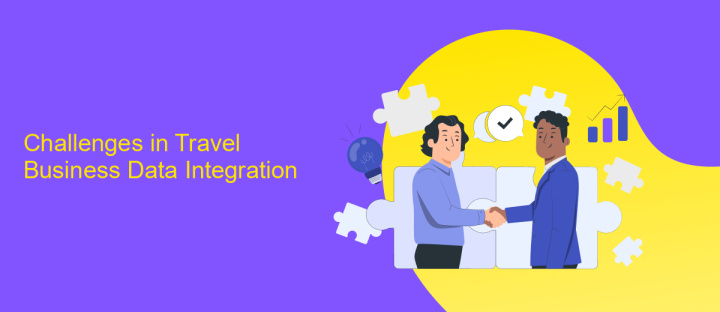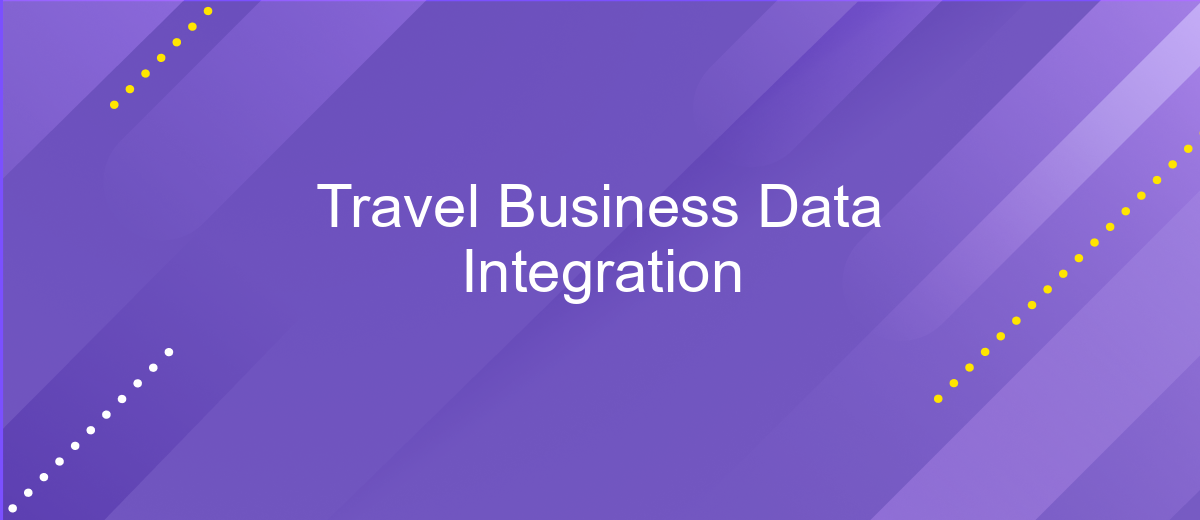Travel Business Data Integration
In the rapidly evolving travel industry, data integration has become a crucial component for businesses seeking to enhance operational efficiency and customer satisfaction. By seamlessly merging data from various sources, travel companies can gain valuable insights, streamline processes, and offer personalized experiences. This article explores the importance of data integration in the travel business and provides strategies for successful implementation.
Executive Summary
The travel industry is evolving rapidly, and the integration of business data is becoming increasingly crucial for maintaining a competitive edge. Travel Business Data Integration enables companies to streamline operations, enhance customer experiences, and make data-driven decisions. By consolidating disparate data sources, businesses can achieve a holistic view of their operations, leading to improved efficiency and profitability.
- Streamlined operations through automated data workflows
- Enhanced customer experiences via personalized services
- Data-driven decision-making with real-time analytics
- Improved efficiency and profitability through comprehensive data insights
Implementing a robust data integration strategy is essential for travel businesses aiming to stay ahead in a competitive market. By leveraging advanced technologies and best practices, companies can unlock the full potential of their data, driving growth and innovation. As the travel industry continues to evolve, those who invest in data integration will be well-positioned to capitalize on emerging opportunities and trends.
Challenges in Travel Business Data Integration

Integrating data in the travel business presents several challenges due to the diverse and fragmented nature of the industry. Different segments such as airlines, hotels, car rentals, and travel agencies often use disparate systems and formats, making it difficult to achieve seamless data flow. Inconsistent data standards and protocols further complicate the integration process, leading to potential data mismatches and errors. Additionally, ensuring real-time data synchronization is crucial for providing up-to-date information to customers, which requires robust and scalable integration solutions.
Security and data privacy are also significant concerns in travel business data integration. Handling sensitive customer information, such as personal details and payment data, necessitates strict compliance with regulations like GDPR and PCI DSS. Moreover, the integration process must be resilient to cyber threats and data breaches. Services like ApiX-Drive can simplify these challenges by offering automated data integration solutions that connect various travel platforms efficiently. ApiX-Drive provides tools for real-time data transfer, ensuring accuracy and consistency while maintaining high security standards, thus facilitating smoother operations and enhanced customer experiences.
Benefits of Travel Business Data Integration

Integrating data in the travel business offers numerous advantages that can significantly enhance operational efficiency and customer satisfaction. By consolidating information from various sources, travel companies can make more informed decisions, streamline processes, and provide a more personalized experience for their clients.
- Improved Decision-Making: Access to comprehensive data enables businesses to analyze trends and make strategic decisions that drive growth.
- Enhanced Customer Experience: By integrating customer data, companies can offer tailored services and recommendations, leading to higher satisfaction and loyalty.
- Operational Efficiency: Data integration reduces redundancies and manual errors, leading to more efficient operations and cost savings.
- Real-Time Insights: With integrated data systems, travel businesses can gain real-time insights into market changes, allowing for quicker responses and adaptations.
- Competitive Advantage: Leveraging integrated data can provide a competitive edge by identifying opportunities and optimizing resources effectively.
Overall, data integration in the travel industry is not just a technological advancement but a strategic imperative. It empowers businesses to deliver superior service, adapt to market dynamics swiftly, and maintain a competitive stance in an increasingly data-driven world.
Best Practices for Travel Business Data Integration

Integrating data in the travel business requires a strategic approach to ensure seamless operations and enhanced customer experiences. A well-structured data integration framework can help businesses consolidate information from various sources, leading to more informed decision-making and efficient processes.
First, it's crucial to identify and prioritize the data sources that need to be integrated. This includes booking systems, customer relationship management (CRM) platforms, and third-party travel service providers. Establishing a clear integration roadmap can help streamline the process and avoid potential pitfalls.
- Utilize standardized data formats and protocols to ensure compatibility across systems.
- Implement robust data governance policies to maintain data quality and security.
- Leverage automation tools to reduce manual data entry and minimize errors.
- Regularly monitor and update integration processes to adapt to changing business needs.
By following these best practices, travel businesses can achieve a cohesive data integration strategy that not only enhances operational efficiency but also provides valuable insights for improving customer satisfaction and driving growth.
Conclusion
In conclusion, the integration of travel business data is paramount for enhancing operational efficiency, customer satisfaction, and overall business growth. By seamlessly connecting various data sources, travel companies can gain comprehensive insights, streamline processes, and offer personalized experiences to their clients. This not only improves decision-making but also provides a competitive edge in a rapidly evolving market.
Tools like ApiX-Drive play a crucial role in facilitating these integrations. ApiX-Drive allows businesses to automate data transfers between different platforms without requiring extensive technical knowledge. This ensures that travel companies can focus on their core activities while maintaining up-to-date and accurate data across all systems. Ultimately, leveraging such integration services can lead to more informed strategies, better resource management, and a more cohesive customer journey.
FAQ
What is Travel Business Data Integration?
Why is data integration important for travel businesses?
How can I automate data integration in my travel business?
What types of data can be integrated in a travel business?
What are the challenges of data integration in the travel industry?
Time is the most valuable resource for business today. Almost half of it is wasted on routine tasks. Your employees are constantly forced to perform monotonous tasks that are difficult to classify as important and specialized. You can leave everything as it is by hiring additional employees, or you can automate most of the business processes using the ApiX-Drive online connector to get rid of unnecessary time and money expenses once and for all. The choice is yours!

